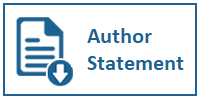THE ROLE OF AUDIT ROTATION, AUDIT COMMITTEE OVERSIGHT, AUDIT CAPACITY STRESS, AND AUDIT TENURE IN DETERMINING AUDIT QUALITY
DOI:
https://doi.org/10.31937/akuntansi.v17i1.4158Abstrak
Abstract— The quality of audits is a crucial factor determining the credibility of financial reporting. This research aims to explore the determinants that impact audit quality for banking companies listed on the IDX from 2019 to 2023. This study examines the role of audit rotation, audit committee oversight, audit capacity stress, and audit tenure on audit quality. The results of this study are expected to provide insights for auditors, regulators, and organizations regarding how these factors influence auditor independence, experience, supervisory effectiveness, and the level of pressure faced by auditors. The study utilizes secondary data obtained through purposive sampling, focusing on the banking sector. The sample consist of conventional bank consistently listed on the Indonesia Stock Exchange (IDX) during 2019–2023, which publish annual financial reports audited by accounting firms registered with the Financial Services Authority (OJK). Based on this criteria, 34 banking companies are selected as research samples. Logistic regression analysis, conducted using EViews 10 program is employed to analyze the data. The findings indicate that audit rotation does not significantly affect audit quality, whereas audit committee oversight, audit capacity stress, and audit tenure have a positive effect on audit quality.
Keywords: Audit Rotation; Audit Committee Oversight; Audit Capacity Stress; Audit Tenure; Audit Quality
Unduhan
Unduhan
Diterbitkan
Cara Mengutip
Terbitan
Bagian
Lisensi
Hak Cipta (c) 2025 Sabrina Sabrina, Kurniawati Kurniawati

Artikel ini berlisensiCreative Commons Attribution-ShareAlike 4.0 International License.
Authors retain copyright and grant the journal right of first publication with the work simultaneously licensed under a Creative Commons Attribution-ShareAlike International License (CC-BY-SA 4.0) that allows others to share the work with an acknowledgement of the work's authorship and initial publication in this journal.
Authors are able to enter into separate, additional contractual arrangements for the non-exclusive distribution of the journal's published version of the work (e.g., post it to an institutional repository or publish it in a book), with an acknowledgement of its initial publication in this journal.
















